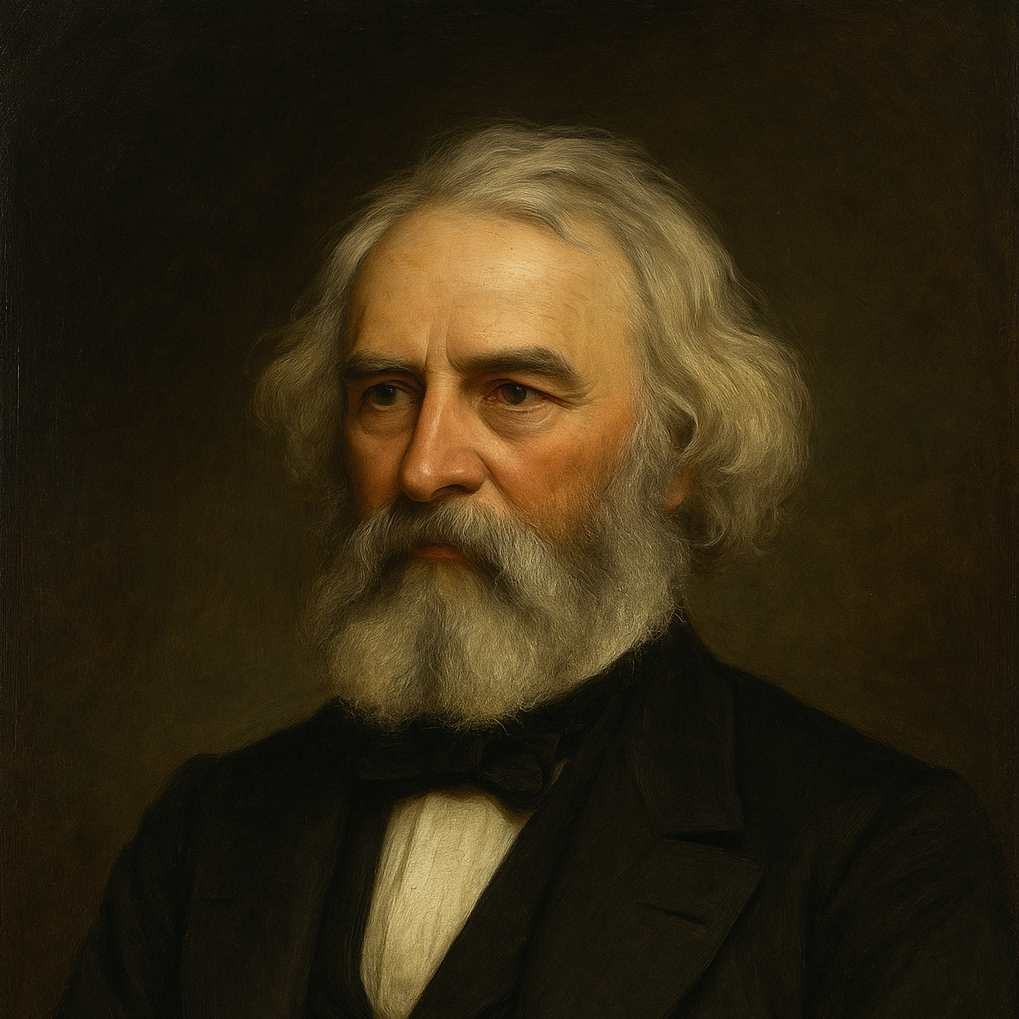The Sermon of St. Francis
Henry Wadsworth Longfellow
1807 to 1882

Up soared the lark into the air,
A shaft of song, a winged prayer,
As if a soul, released from pain,
Were flying back to heaven again.
St. Francis heard; it was to him
An emblem of the Seraphim;
The upward motion of the fire,
The light, the heat, the heart's desire.
Around Assisi's convent gate
The birds, God's poor who cannot wait,
From moor and mere and darksome wood
Came flocking for their dole of food.
"O brother birds," St. Francis said,
"Ye come to me and ask for bread,
But not with bread alone to-day
Shall ye be fed and sent away.
"Ye shall be fed, ye happy birds,
With manna of celestial words;
Not mine, though mine they seem to be,
Not mine, though they be spoken through me.
"O, doubly are ye bound to praise
The great Creator in your lays;
He giveth you your plumes of down,
Your crimson hoods, your cloaks of brown.
"He giveth you your wings to fly
And breathe a purer air on high,
And careth for you everywhere,
Who for yourselves so little care!"
With flutter of swift wings and songs
Together rose the feathered throngs,
And singing scattered far apart;
Deep peace was in St. Francis' heart.
He knew not if the brotherhood
His homily had understood;
He only knew that to one ear
The meaning of his words was clear.
Henry Wadsworth Longfellow's The Sermon of St. Francis
I am busy working to bring Henry Wadsworth Longfellow's "The Sermon of St. Francis" to life through some unique musical arrangements and will have a full analysis of the poem here for you later.
In the meantime, I invite you to explore the poem's themes, structure, and meaning. You can also check out the home page for other musical arrangements or learn more about Henry Wadsworth Longfellow's life and contributions to literature.
Check back soon to experience how "The Sermon of St. Francis" transforms when verse meets melody—a unique journey that makes poetry accessible, engaging, and profoundly moving in new ways.
Want to join the discussion? Reopen or create a unique username to comment. No personal details required!



Comments
No comments yet. Be the first to comment!